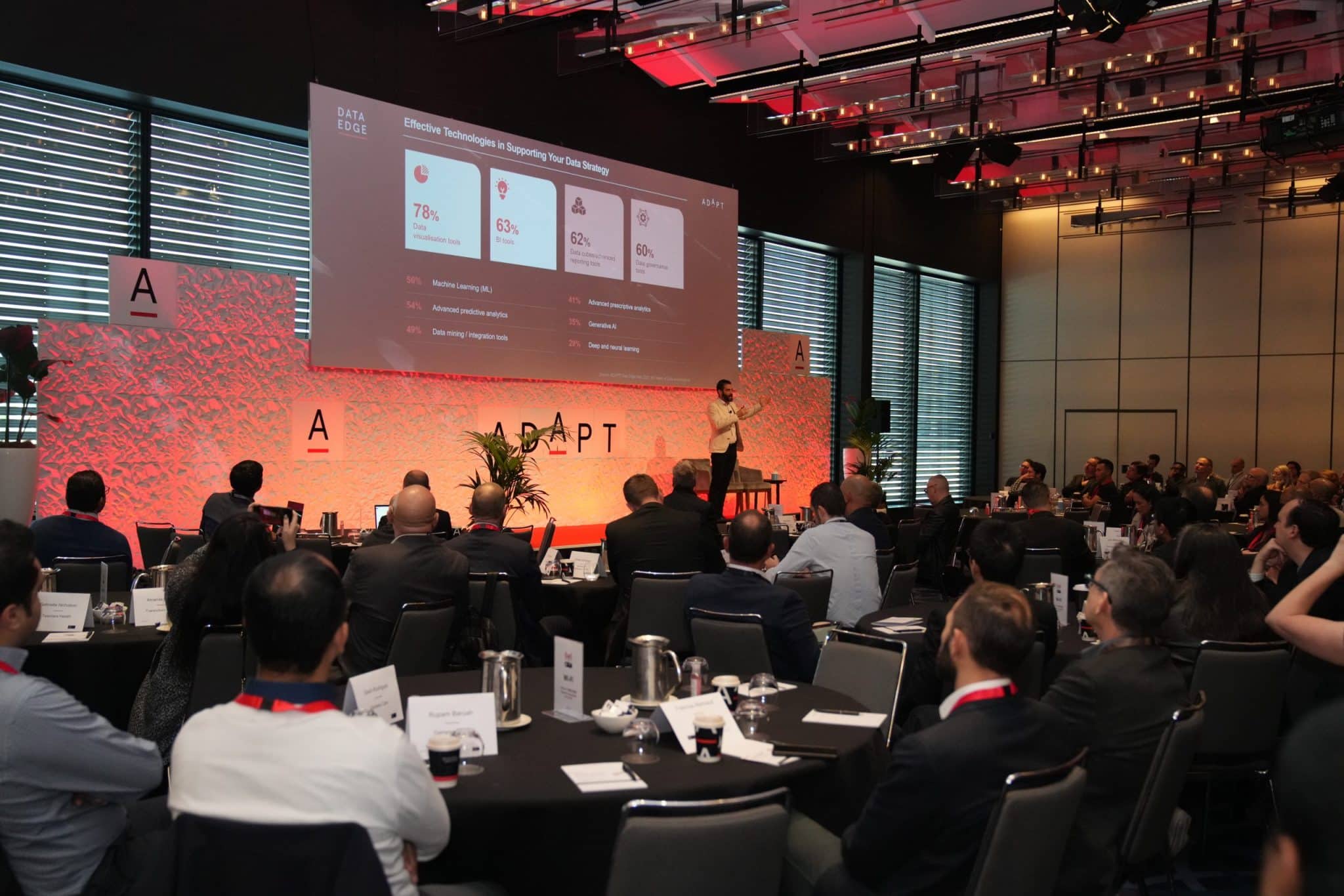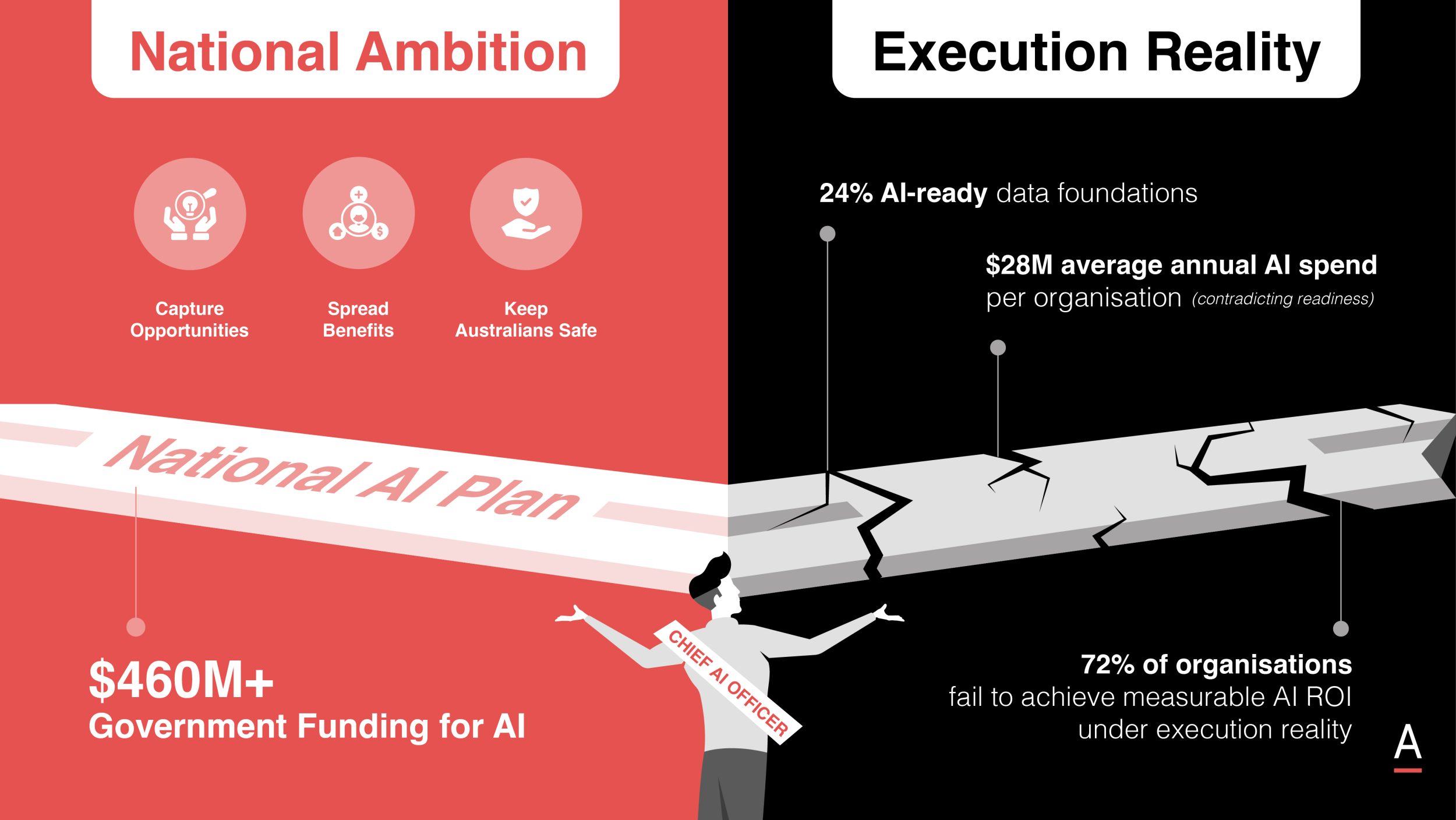Competing business priorities and a lack of a consistent data culture are major barriers across organisations.
The median data literacy for users within an organisation is only 35%, so making effective business decisions requires increased skills among employees.
Classifying data becomes more difficult when there is a low level of data literacy, indicating that organisations may need to invest in training their users on how to use visualisation tools effectively.
In this presentation Gabby Fredkin Senior Research Analyst at ADAPT, examines the core initiatives and challenges for Data Leaders, CIOs, CFOs and the CISO based on the data from survey responses.
Gabby highlights how Treasury Wine Estates took a different approach to overcoming barriers to digital initiatives by collaborating with leaders across the organisation to create a consistent data culture.
The importance of listening to people on the ground and having authentic, closed feedback loops to better understand and improve business processes is essential. Cross training employees to address growing skill gaps in data-driven strategy is also important.
Visualisation tools can be beneficial for improving business decision making and data literacy.
Key Takeaways:
- Using Generative AI comes down to context. Do people understand bias and the limitations of AI to drive competitive advantage.
- Chief Digital Officer: Inconsistent data across platforms is their biggest barrier to customer experience. In response, CDOs want to invest in data quality and data governance, drive new insights, and automate customer journeys. Dashboard usage is the number one transformation initiative for CFOs this year.
- Human resources leadership recognises the importance of building strong partnerships with departments across the organisation as competition for staff increases. The key is to build the right network, the right infrastructure, and the right architecture to ensure good data transfer, data security, and data latency.





























